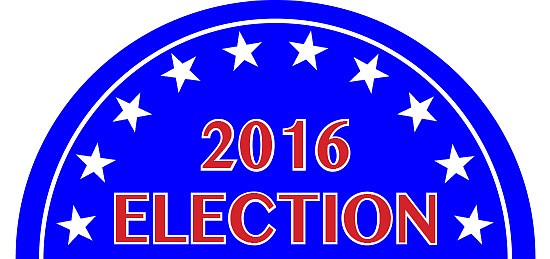This election cycle, four initiative petitions will appear on Missouri's Nov. 8 ballot - three as proposed constitutional amendments and one as a proposed law change.
Tax increases on cigarettes, campaign contribution limits and a prohibition on new sales and local tax initiatives are some of the topics voters can expect to see.
Lawmakers placed a proposed amendment on voter identification requirements on the ballot, and the parks and soil conservation tax renewal is on the ballot by constitutional requirement. To go into effect under the Constitution, all of the initiatives would require a majority vote.
Amendment 3: the Cigarette Tax
Amendment 3, also known as the Cigarette Tax, has been on the forefront of heated debates among tobacco companies, convenience store owners and early education advocates.
Raise Your Hand 4 Kids, a group advocating on behalf of an early childhood and health education fund, has proposed a 60-cent tax increase on cigarettes, and a 67-cent tax on cigarette wholesalers, to go toward funding preschool programs throughout the state. The tax would incrementally increase until 2020.
Linda Rallo, co-founder of the advocacy group, told the News Tribune this is an opportunity to better prepare children across the state for their future.
"Missouri's taxes for preschool are the lowest in the Midwest," Rallo said. "The tax will increase the chances for equal access to more preschool programs, so when children reach grades K-12, teachers won't have to spend time going over lessons that should have been taught at an earlier stage."
If approved, the tax would go directly into a "lockbox" fund for early education and health programs.
In a news release, Ronald Leone, executive director of the Petroleum Marketers and Convenience Stores Association, said the amendment is a scam and not about helping kids.
"Big Tobacco is funding Amendment 3 because it increases Big Tobacco's cigarette profits and market share by massively and unfairly taxing their competition," Leone said.
Despite Leone's dissent, Rallo said the proposal is a once-in-a-lifetime opportunity for new revenue for early childhood education and health funding.
"This is an opportunity to improve the quality of education and for taxpayers to get a return on their investments in our school systems," Rallo said.
Proposition A
Proposition A is a separate issue on the ballot that includes a 23-cent tax increase on cigarette sellers raising taxes on off-brand cigarette companies. The revenue gained by this tax would go toward transportation projects. One caveat is if this law is passed, any future tax increases by any other entity would have to start at the current, 17-cent tax base.
Both taxes need majority voter approval, but only the one receiving the most votes will become written into law or the Constitution.
Amendment 6: Voter ID
Another topic up for voter approval is Amendment 6, also known as the voter identification law.
The amendment would allow the Legislature to, by law, require any person who goes to vote at a polling place during the 2017 election cycle and thereafter to present proof of identification prior to voting.
In an earlier article in the News Tribune, Sen. Mike Kehoe, R-Jefferson City, said, "the bill has one simple purpose, to protect the integrity of elections by ensuring the person casting a ballot is who they say they are."
Some opponents say this will disenfranchise minorities, senior citizens, people with disabilities and others who depend on caregivers for assistance.
Amanda Jensen and Liz Wilson, volunteers for Amendment 6 petitions, said it's very important for people to vote no on this amendment.
"I think of people like my grandmother who don't drive and wouldn't be able to vote because she doesn't have an ID," Wilson said.
Jensen added: "This bill will cost the state $17 million and essentially take away from our elderly, minorities and poor people."
Other amendments
Other amendments on the ballot include:
Amendment 1, which would renew or continue for another 10 years the one-tenth of one percent sales/use tax for soil and water conservation programs and for state parks and historic sites. Voters first approved the tax in August 1984.
Amendment 2, which would establish limits on campaign contributions by individuals or entities to political parties.
Amendment 4, which prohibits the implementation of a new state or local sales/use tax on any service or transaction that had not been subject to taxes as of Jan. 1, 2015. Under current state law, sales taxes are not charged on services like doctor's visits, lawyer's or accountant's services and the labor on vehicle service and repairs. In the past few years, some have proposed allowing taxes on those services - and passing the amendment would block those proposals.

